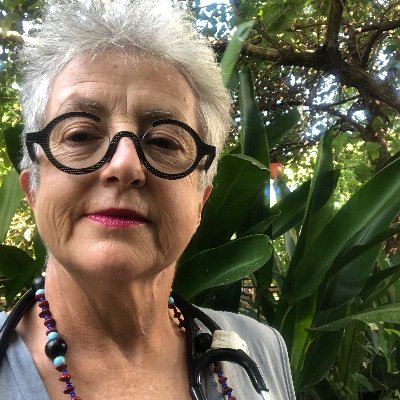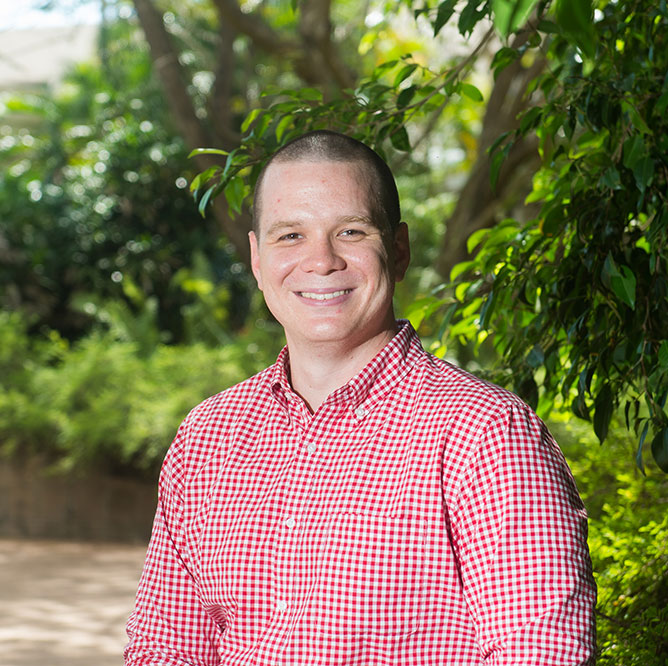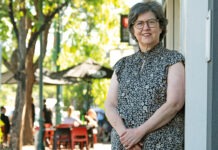
Pharmacists have welcomed the renewed focus on rural and regional communities as Associate Professor Ruth Stewart takes up her role as Australia’s new National Rural Health Commissioner (NRHC).
A former GP and researcher with extensive experience in rural areas, A/Prof Stewart follows Professor Paul Worley, who recently finished his term as the inaugural NRHC.

She will be supported by two Deputy Commissioners who will have a specific focus on allied health, nursing and Indigenous health.
PSA National President Associate Professor Chris Freeman said he looked forward to working with A/Prof Stewart on behalf of pharmacists to improve health outcomes.
‘Highlighted in PSA’s Pharmacists in 2023, it is important to align incentives for pharmacists to support rural and remote communities as well as equip pharmacists with skills and knowledge to deliver closing-the-gap initiatives for Indigenous Australians,’ he said.
A/Prof Stewart, who currently lives and works on Thursday Island in the Torres Strait, said assessing the impact of the COVID-19 pandemic on the rural health workforce and working towards closing the gap would her initial priorities.
‘This is an exciting challenge for my office to develop and promote innovative and integrated approaches to health care delivery in rural and remote areas,’ she said.
A greater role
As the most accessible – and occasionally the only – health professionals in remote communities, pharmacists are often the first port of call for everything from first aid to mental health challenges.

This is something Samuel Keitaanpaa MPS, pharmacist in charge at Berry Springs Pharmacy, about 50 kilometres from Darwin, knows all too well.
‘In my rural pharmacy practice I have so many examples where I have steered people away from mental health crises, provided counselling that has reduced adverse effects of medicines and educated people how to manage their health significantly better,’ he told Australian Pharmacist.
‘Over 5 years I have seen the real outcomes of this and now feel like a valued member of the community. It changes your world when you get a phone call asking for advice and the person finishes with, “I’m glad it’s you on, you gave me such good advice previously”.’
Peter Fell MPS, Operations Manager – Pharmacy for UFS Dispensaries in Ballarat, Victoria, echoed Mr Keitaanpaa’s comments about the vital role of pharmacists in regional communities.
‘Increasingly, pharmacists are becoming a “navigator” for patients who do not understand or are having difficulty accessing the health system in non-metropolitan areas,’ he told AP.
‘They perform critical roles in supplying medicines and assessing and monitoring the response and effectiveness, and supporting patients throughout their lives.’
More services needed
While pharmacists play an integral role supporting residents in regional communities to achieve better health outcomes, they need more support themselves, said Mr Keitaanpaa.
Distance from distribution points makes it harder to balance cash flow with stock levels, he said, especially as pharmacies need to juggle their regular patients and cater to any visitors.
‘The other challenge is the lack of access to referral services, which means that patients’ conditions often deteriorate because they can’t access a physiotherapist, dentist or pain specialist,’ he said.
‘This means I have to balance best practice against the reality of my patient’s situation.’

Mr Fell recounted similar experiences, and said rural pharmacists face many challenges their city-based counterparts don’t.
‘We find that GP access and hospital emergency department access can be challenging, so pharmacists are often in a situation of patients presenting with health issues and requesting advice when they really should have been seen by a doctor,’ he said.
‘Access to professional development is also more difficult as most face-to-face offers are in metropolitan areas. Mental health support can be challenging and peer support or peer networking is significantly reduced.’
A/Prof Freeman said it was important to prioritise support for rural pharmacists, so they could continue to deliver high levels of service.
‘As part of the Seventh Community Pharmacy Agreement, $24.6 million has been allocated to rural support programs, which is a good step forward,’ he said.
‘PSA looks forward to working with government on these programs, as well as progressing regional and rural health reforms with the NRHC and other healthcare bodies.’
Regional recruitment
Staffing is a constant challenge for pharmacies in regional and rural areas, Mr Fell said. This is despite there often being more opportunities for advancement, with early career pharmacists given the chance to take on management roles or work their way towards pharmacy ownership sooner than in a metro location.
‘Ballarat is only around 100 kilometres from Melbourne but to attract capable pharmacists out of the city is nearly impossible,’ he said.
‘We are lucky in that as a reasonably large organisation with multiple pharmacies we have a better capacity to cover illness and leave periods, but recruitment is essentially always on our agenda.’
Mr Keitaanpaa said more work was needed to provide resources for rural pharmacies – both in terms of staff and digital health.
‘There needs to be real leadership to prioritise solutions to issues like workforce recruitment, growing interdisciplinary relationships and enhancing IT capability so that we can support more remote patients directly,’ he said.



 Kelly Abbott MPS[/caption]
Kelly Abbott MPS[/caption]


 Owner of Canberra's Capital Chemist Southlands Louise McLean MPS.[/caption]
Owner of Canberra's Capital Chemist Southlands Louise McLean MPS.[/caption]

 Supplied by CSL Seqirus[/caption]
Supplied by CSL Seqirus[/caption]






